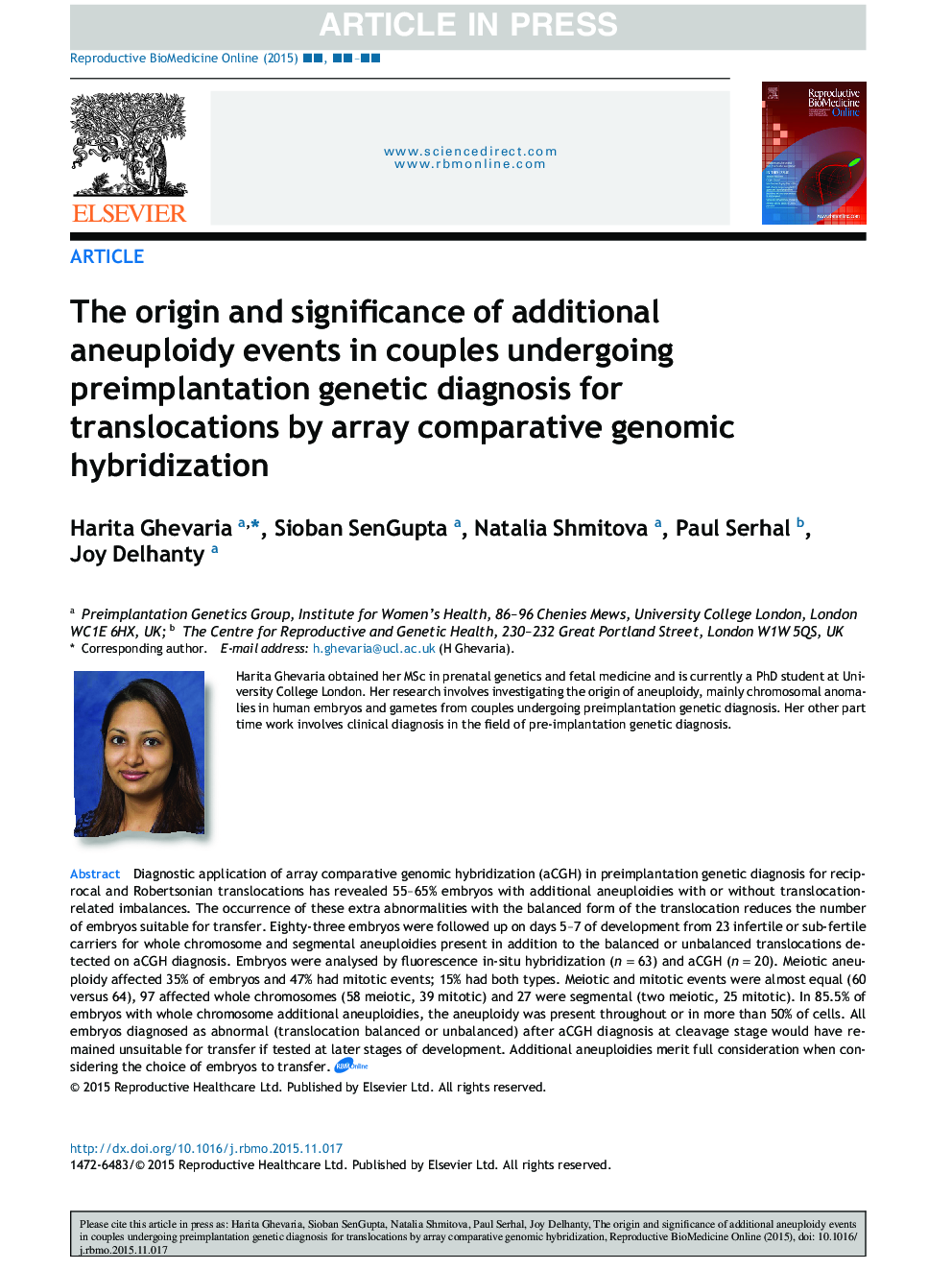| Article ID | Journal | Published Year | Pages | File Type |
|---|---|---|---|---|
| 6188631 | Reproductive BioMedicine Online | 2016 | 12 Pages |
Abstract
Diagnostic application of array comparative genomic hybridization (aCGH) in preimplantation genetic diagnosis for reciprocal and Robertsonian translocations has revealed 55-65% embryos with additional aneuploidies with or without translocation-related imbalances. The occurrence of these extra abnormalities with the balanced form of the translocation reduces the number of embryos suitable for transfer. Eighty-three embryos were followed up on days 5-7 of development from 23 infertile or sub-fertile carriers for whole chromosome and segmental aneuploidies present in addition to the balanced or unbalanced translocations detected on aCGH diagnosis. Embryos were analysed by fluorescence in-situ hybridization (n = 63) and aCGH (n = 20). Meiotic aneuploidy affected 35% of embryos and 47% had mitotic events; 15% had both types. Meiotic and mitotic events were almost equal (60 versus 64), 97 affected whole chromosomes (58 meiotic, 39 mitotic) and 27 were segmental (two meiotic, 25 mitotic). In 85.5% of embryos with whole chromosome additional aneuploidies, the aneuploidy was present throughout or in more than 50% of cells. All embryos diagnosed as abnormal (translocation balanced or unbalanced) after aCGH diagnosis at cleavage stage would have remained unsuitable for transfer if tested at later stages of development. Additional aneuploidies merit full consideration when considering the choice of embryos to transfer.
Related Topics
Health Sciences
Medicine and Dentistry
Obstetrics, Gynecology and Women's Health
Authors
Harita Ghevaria, Sioban SenGupta, Natalia Shmitova, Paul Serhal, Joy Delhanty,
